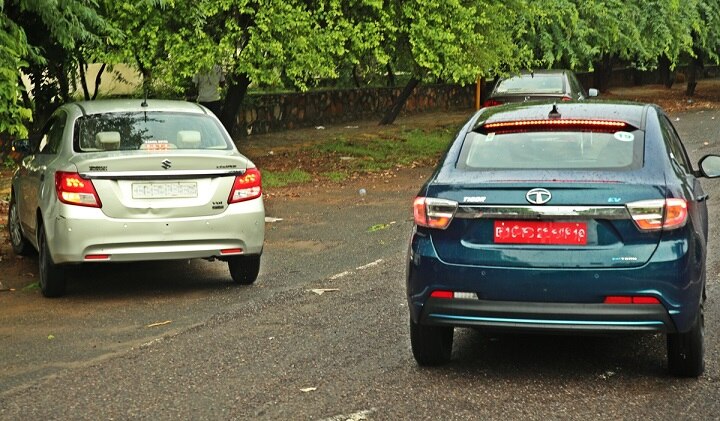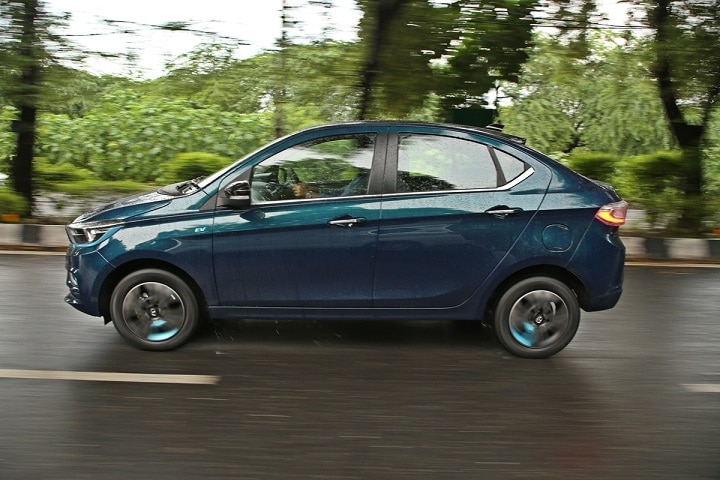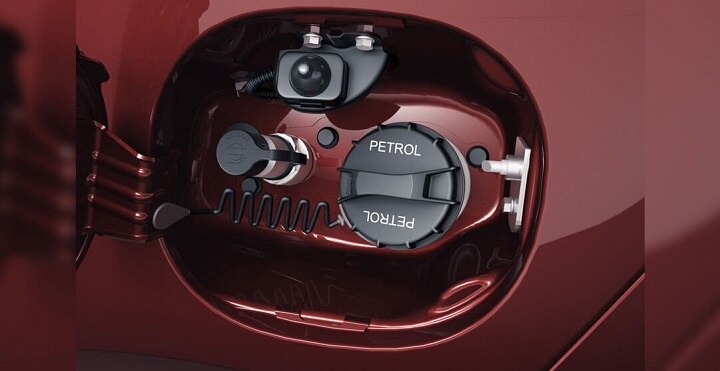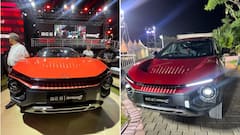Petrol vs EV vs CNG: Maruti Dzire And Tata Tigor, Know Which Is Cost Effective & Performs Better
For the Tigor EV, its biggest rival is the Maruti Dzire since both are from the same segment. Know which will be a better buy for you.

With rising fuel prices, the interest in EVs is now at an all-time high but at the moment there is only Tata Motors that can claim to provide electric cars at a mass-market level. By that, we mean electric cars for the common car buyer below the Rs 20 lakh price point. In the case of the Tigor EV, it is the most affordable electric car with a starting price of Rs 12 lakh. For the Tigor EV, its biggest rival is the Maruti Dzire since both are from the same segment. The top-end Maruti Dzire petrol is priced at Rs 9 lakh plus. Of course, this is not a direct comparison but a feature listing out the pros and cons of each type of car.

That said, the debate between petrol cars and electric cars has reached many car buyers' minds with these fuel prices and the thought of the lower cost of operating an electric is no doubt proving to be a desirable feature. Let's talk about each type of car here. You can get a standard petrol Tigor but the electric version has gained more attention due to its affordability. The Tigor has a 26kWh Lithium-ion battery which develops 75bhp and 170Nm. The Dzire comes only in petrol form while CNG is also there with the 1.2l petrol version developing 90bhp. Its fuel efficiency per litre of petrol is above 23 kmpl. The cheaper CNG version of the Dzire meanwhile gets less power at 77bhp but has more efficiency at 31.12km/kg. The Tigor also has a CNG version which gets out 73 bhp and has an efficiency of 26.49 km/kg.
Electric cars have their own USP and that is the ease of driving. There is no gearbox or engine to worry about plus performance is the best with smooth power delivery. The Tigor EV has enough power and is perfect for city use. Compared to petrol or CNG cars, performance is best and of course, there is no noise at all! The CNG car has the least performance but the petrol car offers good performance with enough torque and power for use in the city and highway. While electric cars have impressed in performance terms, they also impress with no emissions and being cleaner to the environment. A CNG car is also cleaner of course with petrol cars obviously having more carbon emissions.

Then let us move to the important bit of cost of driving these types of cars. An electric car is the easiest to maintain with the cost of charging is less than one rupee per km depending on electricity rates. A CNG car is not that cheap and is slightly more expensive to maintain per km in terms of filling it with CNG. However both CNG and electric are still way cheaper than a petrol car which is now much more expensive to run with costs coming to nearly 5 to Rs 6 per km depending on variant. Another factor is that electric cars require much less maintenance than diesel or petrol cars in the long run. So, petrol cars are indeed expensive to run but it still has many advantages as well. While being expensive to run due to fuel costs, petrol cars are still cheaper to buy than electric cars which are still expensive to buy outright. Despite tax benefits, electric cars are still expensive and the Tigor EV is priced much higher than both its own petrol sibling and the Dzire petrol or Tigor/Dzire CNG.
Then obviously there is the range and here the Tigor EV claims 306km which is enough for city daily use for many but the lack of infrastructure means that it is dependent on a city drive and while more charging stations are coming up, the ease of filling up a petrol car or taking it anywhere is an advantage. A CNG car also faces the same issue as an EV with fewer CNG pumps but it is not that big an issue as electric cars.
So what is the verdict? An electric surely is more attractive as a buy today with rising fuel costs and as a city commuter with less than 50km or a bit more use per day, the Tigor EV is perfect and it is the only EV at this price point. As a car used in the city, the Tigor EV scores, and with more charging stations, charging is not going to be such a big issue. However, the charging infrastructure is still present in big cities and as your only car, a CNG car makes more economical sense since it is cheaper outright, has more CNG stations, and is more practical with not every home having access to a charging station or parking near a plug point.
That said, CNG cars also have issues of less power, and lesser CNG stations vs demand means that petrol cars give you that smoothness, performance and the ability to fill the tank anywhere which is its biggest USP. So as of now, the electric car makes sense as a city car or a second car for use in urban areas but CNG is the next bet to save costs for the mass market car buyer for now below the 10 lakh price point but it has disadvantages mentioned above. In the future, we will see more EVs and more CNG/efficient petrol cars coming in too.





































